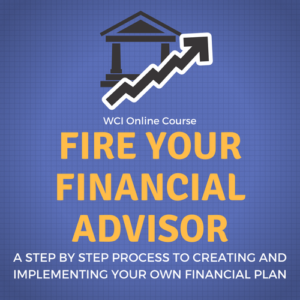Personal debt is a topic that lends itself to many disagreements. There is the argument about “good” debt and “bad” debt, which is ridiculous since every debt is a burden. “Good” debt is akin to wearing your cleanest dirty shirt. If given the choice between inheriting a house that has “good” debt (a mortgage), or inheriting a house free and clear, no one would pick the house with “good” debt. Maybe it is not as “good” as people want to pretend it is.
Then there is the argument about whether to invest or pay down debt. This is a false argument since money is fungible. This argument is an attempt to disguise the fact we are using debt to boost our lifestyle and pretend it is to make more money. It would be equally correct for the same person to say they are going on an expensive vacation instead of paying down their debt. The vacation story doesn’t sound as “responsible” as the investment story, but they are in fact the same story. If you buy a luxury when you still have debt, you are using debt to live a higher lifestyle than you can afford.
(Are you interested in learning about financial freedom through real estate investing? Join me and several other speakers at the Physician Freedom Summit 2025, October 6-8, in Los Angeles.)
I understood the fungibility of money for the first time when I visited a friend who borrowed money from me several months earlier that he “couldn’t pay back yet.” Then he proudly showed me his new boat. Frankly, he bought that boat with my money, but he pretended he bought it with different money. He is using my money to buy a lifestyle he can’t afford, without my permission.
We paid off our house in 2001. I have never regretted that decision. If the above false arguments are making you feel uneasy about paying off your home, then here are twenty reasons you should make this great financial move. It’s time for you to own your lifestyle instead of living a borrowed one. An owned lifestyle can’t be repossessed.
1: It will pay for your kid’s college.
Rather than putting money into a college savings account, which comes with strings attached, we paid off our house. The house payment we used to make covered the cost of putting our two kids through college without borrowing any money.
2: It offers a great guaranteed return.
If you have already paid half of your mortgage, you are sitting on a great opportunity. Let’s say your principal and interest payments are $4,000 a month and you still owe $300,000 on the mortgage, then using $300,000 to pay off the mortgage will return $48,000 a year in cash flow. That is a 16% after tax guaranteed return.
3: You won’t have to earn so much money.
In #2 you have an extra $48,000 a year to spend. If your total income taxes come to 40% of your paycheck, that is the equivalent of an $80,000 raise. Or an $80,000 year-end bonus. Since eliminating your mortgage is a drop in expenses, you might be able to take one day off a week without changing your lifestyle.
4: You can retire sooner.
If you will be using the 4% rule on your investments once you retire, and you are getting close to retirement, you will now need $48,000 less after-tax income to retire. At 4%, you will NOT need the extra $1.2M in a Roth account to generate this $48,000 income to make the mortgage payment. If the income comes from a taxable account, like a 401(k), even more money will NOT need to be saved. However long it would have taken you to save that $1.2M, is how much sooner you can retire.
5: It lowers your risk.
Without a mortgage, no one can repossess your home. During the peak of the recent pandemic, many people’s income suddenly dropped. For them, life would have been a lot nicer without a mortgage.
6: Your practice can improve.
After paying off my mortgage, I had the courage to drop some procedures from my practice that I didn’t like doing, making my practice a lot more enjoyable.
7: The market can never make you upside down.
Many mortgage holders suddenly became upside down on their home when the values dropped in 2008. When you owe a lot more than the house is worth, trouble can ensue, especially if you need to move. With no mortgage on my home, the price drop in 2008 didn’t affect me.
8: It can cover healthcare costs in retirement.
It’s unbelievable how many people worry about the cost of healthcare during retirement, which might be $15,000 a year. But they don’t bat an eye about carrying a $48,000 a year mortgage into retirement. Paying off the house can eliminate the worry associated with healthcare costs.
9: You can meet your goal.
Eventually becoming debt free is a goal for many people. You can reach it now.
10: No more saying you are “Debt free except for the mortgage.”
I never understood this statement. Debt is binary; you either have debt or you don’t. The underlying assumption of this statement is that the mortgage is just a fact of life, so you only need to pay off all the other personal debt.
11: Debt free is a new bragging right.
Now that people realize it is better to be debt free, it is a new status symbol.
12: More peace of mind.
Debt can be a big worry for a lot of people. Debt free brings inner peace.
13: Reach other financial goals sooner.
Without debt payments to make, household expenses are drastically lower. This frees up a lot of cash flow to make other financial goals happen sooner.
14: No longer a slave.
Proverbs 22:7 states that the borrower is servant to the lender. If you don’t think this is true, skip a few house payments and see what happens.
15: You can stop the lifetime borrowing cycle.
Once you get out of the mode of living a lifestyle supported by borrowed money, you realize you never need to borrow again. The debt cycle ends. Debt is no longer acceptable or necessary.
16: Debt comes with other baggage.
There is more baggage trailing along with debt than what is on the spreadsheet. I didn’t realize this until after I paid off my last student loan and felt the burden lifted from my shoulders that I didn’t even know I was carrying.
17: No more banking headaches.
I always hated the huge paperwork nightmare that accompanied refinancing a home. It takes quite a bit of time to gather all the information the bank requests. If you have a mortgage, it is likely that you will eventually refinance it and go through this headache again.
18: Lower insurance expenses.
When you don’t have a mortgage payment, you need less life insurance to cover your monthly expenses, less disability insurance to make the monthly payments if you can’t, and no mortgage insurance that you probably forgot to cancel when the loan to value became less than 80%.
19: Kids learn a valuable lesson.
Kids tend to follow in their parents’ footsteps. Our family has a pattern of paying off their homes. In both my and my wife’s families, our grandparents, parents, siblings, and kids all live or lived in homes without a mortgage.
20: No one goes back once they get there.
The best evidence of a paid off mortgage being a great thing is that people who pay off their homes do not change their mind and get another mortgage after becoming debt free. Those who have lived both ways, with and without a mortgage, very rarely choose to take on another mortgage. Those who support having a mortgage do not have first-hand experience of what life is like without one. They are working from a theory they read or calculations on a spreadsheet.
There are lots more good reasons to pay off your home and become debt free, but I’ll stop here. If twenty is not enough to convince you, then 100 won’t be enough either. If you are still feeling unsure, pick up a copy of my book The Doctors Guide to Eliminating Debt and see if some of the other reasons make better sense to you. Sometimes though, if your Debtabetic Neuropathy is too great, only an amputation will help. I hope I got to you before that was necessary.





Reason 21: You stop paying money to the wrong, undeserving people/entity. Money going to debt is money not going to the most important person(s): yourself and family. A low interest rate doesn’t convert the wrong, undeserving people into the most important people.
We were debt-free but the house, and then we paid off our house in November, 2022. We now take that mortgage payment and pay it to ourselves.
There is also a very large power/agency/autonomy bump that comes from being 100% debt free. This bump is further enhanced when your money earns more than you do. That feeling is something that any investment or payoff calculator or any table can measure.
Reason 22 (risk, part 2): You won’t lose your home due to a decline in earning power due to illness or disability. Your spouse or heirs won’t lose their home due to your sudden, unexpected death. We physicians are not immune to these potential outcomes. We can calculate the spread on early pay-off v. investments, etc. Not one of us can calculate the exact date when our income declines or our death date.
Just a quick nuance about not having a mortgage…#credit score #loan difficulty. Three years ago and 8 years post-mortgage payoff on our primary home, my wife and I tried to get a jumbo loan for a second home. Unbeknownst to us, the fact that we hadn’t been paying a monthly mortgage for years coupled with our impeccable credit card balances, our credit scores had actually dropped and we were considered a higher risk loan because we hadn’t had evidence of any regular credit/debt payments since we had paid off our mortgage. Despite having net wealth (equity in our existing primary home, ample retirement savings to retire back then, etc), we had to have our new mortgage go through special underwriting. The bankers and brokers told us (possibly self-serving, but realized through our lower credit rating) that having an active mortgage helps demonstrate one’s ability to pay for another mortgage. So the more debt you have, the more debt-worthy you are. Having said this, and hard to derive any sympathy for this 1st-world problem, paying off our primary mortgage was exceedingly liberating, added significantly to monthly cash flow, and generally felt right.
If you become debt free and stay that way, the credit score means nothing.
I have a mortgage at 2.375% and after taxes it is obviously less.
I have treasuries paying 5% & no state tax.
I could pay off my mortgage multiple times over for peace of mind but should I ignore our government’s welfare for the wealthy?
My CPA said keep the mortgage & keep the treasuries.
Sorry but I disagree with your CPA.
The arbitrage you present here is correct for most folks. Hence ‘good debt’ like yours is not just a low effective interest rate but arguably closer to ‘free-to-borrow money’ when considering inflation. We have a similar situation refinanced years back down to 2.175% and I love it. If you can juggle the headspace of debt-free living with maximizing your overall returns — because yes, money is fungible — you’re winning the game. Don’t spend your liquid capital foolishly to chase a feeling.
John E. If you don’t spend your money in ways that make you feel good, why bother saving it at all? The purpose of saving money is to take good care of you when you retire. I hope everyone spends their money on things that make them feel good. Money can’t buy happiness; it only buys options. But we are free to pick the options that make us happier.
Your number 2 guaranteed income return of 16% is calculated wrong because $48000 is not return on your investment, only the interest payment part is.
No that is the correct amount. This is not an actual investment return. It is the effect cash flow returned by making the move. You pay off the mortgage and you don’t make $48,000 in payments next year. You will have $48,000 more cash flow because of this move.
I think it is a little more nuanced even if the loan is fairly easy to payoff. Do like your comparing paying off the mortgage to what amounts to a single payment purchase of a term annuity. Makes comparison so much easier than calculations using the mortgage APY. Feel foolish for not recognizing that, frequently referred to as a BFOTO. So here are the real numbers for why I am no longer accelerating mortgage pmts. Currently owe 247,149.70 on an 850,000 property with a monthly pmt. of 1,129.77, rate 2.375 (which is why I refinanced with a plan to pay off in less than 10 years) for 26 years. APY would be 5.48% vs > 1%$ more on my investments (admittedly pre-tax). My big hang up is that in 26 years money paid to purchase the annuity is gone meaning the portfolio would be ahead by 247,149 in principal. Using a more complex formula which included loan rate also showed an advantage for not accelerating the loan payoff which is why I went back to only paying the required monthly PI. My accountant agreed. Am I indeed missing something?
Yes, you are missing something. Your example is back to simply looking at the interest rate differential and ignoring the other 20 things on the list. You left out that during the 26 years after paying off the mortgage (buying the annuity) you also experienced 26 years of having an extra $1,129.77 to invest (or spend) every month. (no more mortgage payment to make). That monthly investment of your old mortgage payment compounded at 7% for 26 years is a balance of $1,001,161.20.
thanks. Timely post. I am debt free… except for my mortgage. LOL!
I am currently paying double payments on it and just broke below $200k.
My plan is to pay it off in another 2 or 3 years, by throwing all my spare cash at it.
Looking forward to the extra cash flow when the mortgage is gone!